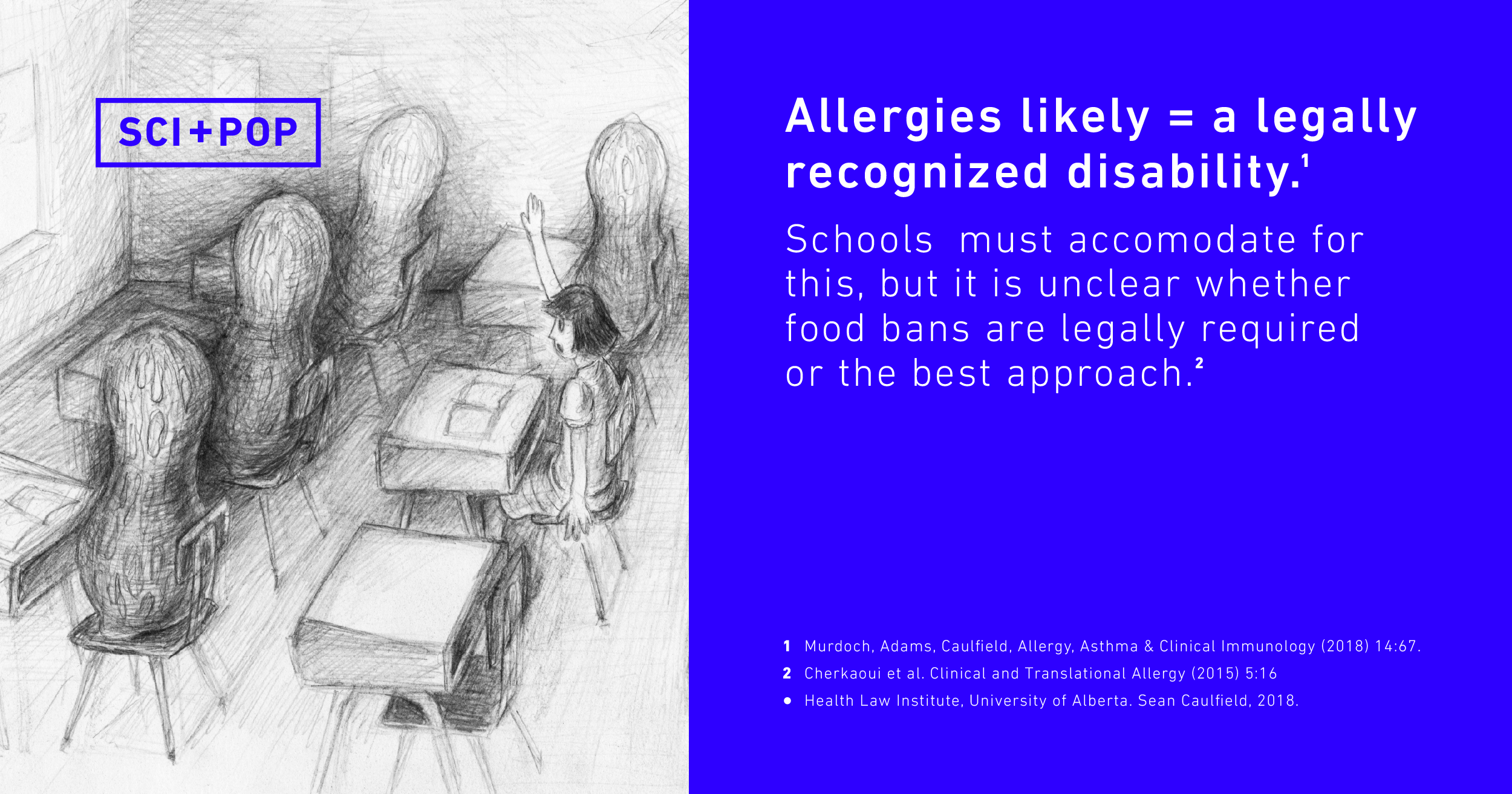Is food allergy a legal disability and how does this affect Canadian schools?


Artwork: Sean Caulfield
In the Canadian legal context, food allergy is considered a disability that must be accommodated by schools. However, food bans are not legally required, according to the conclusions of a new AllerGen study published in Allergy, Asthma & Clinical Immunology.
AllerGen investigator Prof. Timothy Caulfield (University of Alberta) led the research, which analyzed legislation, human rights policies and relevant precedents in case law, and identified instances where Canadian courts clearly determined that food allergy was a disability.
“Since food allergy is a disability, it triggers a legal duty for schools to ensure that food-allergic students receive fair treatment and are not discriminated against due to an allergy,” explains Professor Caulfield.
On the other hand, the researchers did not find precedents to legally require food bans in schools. In fact, they conclude that it may be in the best long-term interest of all parties to avoid such bans.
“Important protections for allergic students and the school community will continue to include education about food sharing, vigilance, and adequate emergency response mechanisms,” observes the study’s first author, AllerGen HQP Blake Murdoch, a research associate at the University of Alberta’s Health Law Institute.
“We feel that the best policy advice for schools looking to craft sensible, effective, and rights-sensitive policies around food allergies is to consider the particular context of their own setting, as well as the best available scientific research on best practices for food allergy safety and management.”
Read the AllerGen ResearchSKETCH that summarizes this research.
Read the Press Release.
